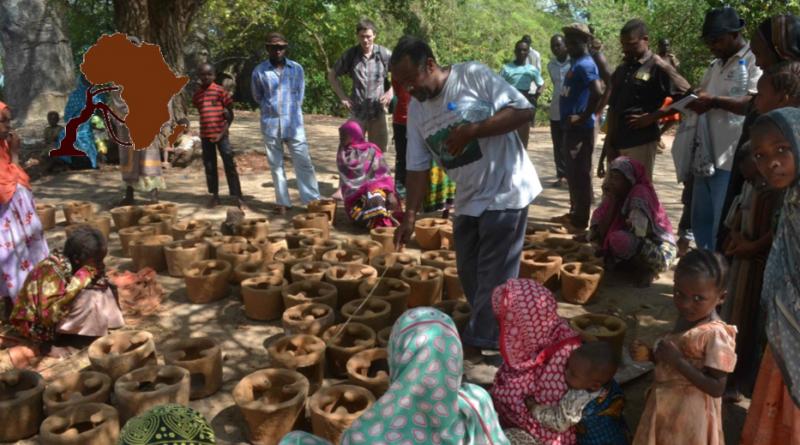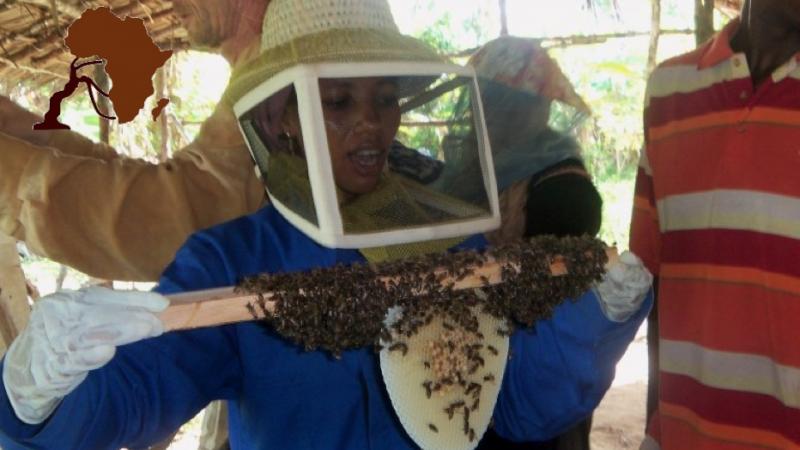The eco-village concept provides a community-led and owned model for green development, promoting food security, resilience and the ability to adapt to climate change. In a short period of time, EU-funded eco-village activities in Tanzania have shown strong results - for example, providing inspiration and support to more than 20,000 people on the island of Pemba, as they adapt to the changing environment.
Last year, capacity4dev.eu reported on the progress of the Tanzanian eco-village at Chololo, where the community has successfully adopted simple technologies to enable green development in the face of climate change.
Chololo has recently captured the attention of Spanish journalist Jorge Valero, who highlights it as the ‘good practice’ example in his journalistic work- in- progress, A Tale of Two Villages. In this work, Valero looks to identify key principles for success in development policies in some of the poorest areas of Africa. He compares the traditional top- down development approach represented by big projects, exemplified by a fish factory at Lake Turkana (Kenya), with the engagement and empowerment of the community through smaller, information based innovations, like those introduced in Chololo.

Valero’s project won a grant from the Gates Foundation as part of the European Journalism Centre’s (EJC) Innovation in Development Reporting (IDR) Grant Programme, and his report will be published next year.
While Chololo’s example is being lauded in the drylands, another eco-village project on the Tanzanian island of Pemba is drawing to the end of its first five year EU-funded cycle, having empowered the community to test, evaluate and adapt climate change related innovations in forestry, agro ecology, agriculture, water, energy, and natural resources.
Over a long period of time, small-scale farming and fishing at Pemba had depleted resources, and the effects of climate change threatened the island’s capacity to support its 300,000 inhabitants. The Community Forests International inititatives at Pemba commenced in 2008, aiming to transform communities by providing them with the tools to adapt to climate change.
“We started with tree planting - we have planted over a million trees - but then we began to add a host of other components,” said Mbarouk Moussa Omar, CFI’s Pemba Project Manager, who was in Brussels recently attending the Global Climate Change Alliance (GCCA) Global Policy Event. Both the Chololo and Pemba eco-village projects are mainly funded through the GCCA.
‘We began rainwater harvesting, planting food crops between rows of planted trees, agroforestry; we began bee keeping, bringing bees into planted forests,” continued Moussa, a native Pemban himself. “We started growing food outside people’s doors in kitchen gardens, we introduced solar energy, improving how we cook - the stoves themselves as well as providing an alternative to charcoal …”
The project's basis and key ingredient is information, that can be easily spread and shared. Put simply, CFI shares knowledge or information about specific technologies and activities, then the community adapts the technologies to fit their needs.

Each activity has the potential to generate income - for example, trees are planted for conservation, but also for timber or for fuel wood; earth blocks may be used to build own homes, or they can be sold.
“Each innovation created an entire industry,” said Jeff Schnuur, the Executive Director of Community for Forest International. “Conservation and economic development bridge the gap in Pemba. This has allowed Pembans to become more resilient and to diversify how they make a living.”
Schnuur commends the eco-village model, which has allowed the project to scale up quickly. “We work in five communities, with ten different technologies, so we have 50 different pilot projects, and in a short period of time we were able to transfer results,” he said.
The majority of project staff are from Pemba, so word of mouth and the human factor of ‘wanting to keep up with the neighbours’ also helped, Schnuur added.
Developing the capacities of community leaders to manage the changes was factored in to promote sustainability. With this, the project has witnessed the development of a ‘culture of innovation’ in communities, something that CFI considers to be essential in the context of climate change.
CFI is now building a Rural Innovation Campus in Pemba that will allow community leaders from around the world to visit and see what they call “Pemban-style change”, and to adapt the concept to their own needs.
Tim Clarke, the previous Head of the EU Delegation to Tanzania, was the impetus behind the EU's involvement with the three eco-village projects at Chololo, Pemba and Moroboro. “They have made an impact, and the government and communities have woken up,” he said recently in Brussels. “Over 20 technologies have been introduced (at Chololo), and they are working. People are making money and there is a new sense of self governance.”
The current team at the EU Delegation to Tanzania, under Ambassador Filiberto Ceriani Sebregondi, is facilitating the EU's commitment to an additional € 8 million towards eco-village development across Tanzania, as part of GCCA funding.
“The concept has found a base. By empowering communities with the right technology, encouraging and assisting them to manage their own development, there can be big change,” Tim Clarke said.
Photos courtesy of Community Forests International
This collaborative piece was drafted with input from Sophie De Coninck and Omar James Kanaan, with support from the capacity4dev.eu Coordination Team.


Log in with your EU Login account to post or comment on the platform.